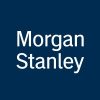Related Jobs
30 resultsFull-Time | TBD

Full-Time | TBD

Full-Time | TBD

Employee | Full-Time | $93k - $119k

Full-Time | $122k - $215k

Full-Time | $260k

Full-Time | $37/ hr

Employee | Full-Time | $200k - $235k

Full-Time | $54k - $75k

Full-Time | $120k - $160k

Full-Time | $180k - $225k / yr

Full-Time | $70k - $80k/ yr

Full-Time | TBD

Full-Time | $162k - $242k

Full-Time | $50k - $55k

Full-Time | $63k - $75k

Full-Time | $76k - $148k

Full-Time | $118k - $170k

Full-Time | TBD

Full-Time | TBD

Full-Time | TBD

Full-Time | TBD

Full-Time | TBD

Full-Time | TBD

Full-Time | $27 - $31/ hr

Employee | Full-Time | $204k - $287k

Employee | Full-Time | $180k - $252k

Employee | Full-Time | $118k - $244k

Employee | Full-Time | $85k

Full-Time | $80k - $155k
Job Title: Director of Assessment
Department: Office of the Provost
Location: Remote
Status: Exempt
Reports To: AVP, Academic Administration and ALO
General Purpose Of The Job:
SCU seeks a highly skilled and strategic Director of Assessment to lead and coordinate the assessment of student learning and program review across all academic programs. This individual will be responsible for developing and implementing a comprehensive assessment and program review strategy that supports accreditation, continuous improvement, and institutional effectiveness. The Director will work collaboratively with faculty, program directors, and university administration to ensure assessment practices are meaningful, manageable, and aligned with the university’s mission of preparing competent, caring healthcare professionals.
The Director works through and with university, college, program, and center leadership as well as two key councils to lead and coordinate assessment efforts across the university.
Key Councils:
Assessment of Learning Council: Led by the Director. Assessment of student learning and achievement by faculty, programs, and the institution is led and influenced through this council.
Accreditation Coordinating Council: Led by the AVP, Academic Administration. Assessment of program and institutional effectiveness is supported and influenced through this council, where the Director is a key member. The Director guides and supports effective Program Review processes through this Council, which also supports accreditation competence.
Rather than implementing assessments directly, the Director empowers faculty to develop and refine assessment practices within their programs, ensuring a cohesive and effective approach to measuring student learning. The Director will advise programs and colleges on acquiring or developing the expertise needed to effectively assess student learning and program effectiveness.
Reports to the AVP of Academic Administration as part of the team responsible for institutional effectiveness.
Essential Duties And Responsibilities:
Assessment Leadership and Strategy
- Develop and oversee a university-wide assessment strategy to measure student learning outcomes and program effectiveness.
- Guide faculty and program directors in designing, implementing, and improving assessment plans (e.g. curriculum mapping, data analysis).
- Ensure assessment efforts align with accreditation standards (e.g., regional and programmatic accreditors).
- Provide expertise on best practices in assessment of student learning in areas specific to the mission and values of SCU (e.g. interprofessional education, integrative health, whole health).
- Lead the Assessment of Learning Council, using it as the primary mechanism to shape and guide the university’s assessment strategy. Ensure the council serves as a platform for aligning assessment with accreditation standards, institutional priorities, and faculty-driven innovation.
Program Review Guidance and Support
- Develop and oversee the university-wide program review process, ensuring it is data-driven and aligned with institutional priorities and planning.
- Guide program directors, deans, and university administration in designing, implementing, and improving program review plans (e.g. components, timelines).
- Ensure program review findings are integrated into university planning and resources (e.g. annual budgeting processes)
- Ensure program review efforts align with accreditation standards (e.g., regional and programmatic accreditors).
- Serve on the Accreditation Coordinating Council.
Collaboration & Faculty Support
- Partner with faculty, program directors, and deans to create assessment frameworks that are meaningful and sustainable.
- Conduct workshops and training on effective assessment practices, data interpretation, and continuous improvement.
- Support faculty in using assessment results to enhance curriculum and pedagogy.
Data Collection, Analysis & Reporting
- Manage the collection, analysis, reporting, and maintenance of assessment data across programs.
- Working with other offices as needed, develop dashboards, reports, and presentations to communicate findings to stakeholders.
- Ensure assessment data informs decision-making and institutional effectiveness efforts.
- Prepare the Annual University Assessment report.
- Ensure the timely publication of formal Program Reviews.
- Provide data to support the timely publication of the Program Scorecards.
Accreditation & Compliance
- Serve as a key liaison for assessment-related accreditation and program review requirements.
- Maintain compliance with institutional, state, and accreditation reporting expectations.
- Prepare and submit assessment reports for accreditation visits and program reviews.
Student Success
- Assists academic programs and the Office of Institutional and Academic Insights with conducting and analyzing annual data related to student success
- Monitor and evaluate student success metrics regularly to identify at-risk programs
- Collaborate with academic program for retention strategies, such as early alert systems and proactive outreach to struggling students
The job description is subject to change. Other duties to be performed as assigned.
Attendance
Must be punctual and timely in meeting all requirements of performance, including, but not limited to, attendance standards and work deadlines; beginning and ending assignments on time; etc.
Remote position.
This position may require occasional onsite support and/or attendance in order to meet the essential functions of the job. Onsite activities may include support of accreditation activities, support of assessment activities, and other similar tasks. Most work is completed remotely and this is a remote position.
Key Attributes for Success
- Systems-thinker and process builder able to design, implement, and refine scalable assessment and program review processes that are both effective and sustainable. Must be comfortable building structures from the ground up, streamlining workflows, and ensuring reasonable consistency across diverse academic programs.
- Effective collaborator who can work across disciplines and programs.
- Strong communicator who can make assessment data accessible and actionable.
- Proactive and solutions-oriented approach to assessment challenges.
- Ability to multi-task and manage multiple projects.
- The social acumen and emotional intelligence to guide, lead, and influence the work of others effectively.
Supervisory Responsibilities:
This position currently has no supervisory responsibilities, but may in the future.
Education And/Or Experience:
Required
- Master’s degree in Higher Education, Assessment, Educational Research, or a related field (Doctorate preferred).
- 5+ years of experience in academic assessment or institutional effectiveness in higher education.
- Expertise in designing and implementing student learning outcomes assessment.
- Strong data analysis skills with experience using assessment software (e.g., Tk20, Watermark, Qualtrics, or similar).
- Excellent ability to translate assessment data into actionable insights for faculty and leadership.
- Demonstrated strength in providing meaningful, digestible summary reports that can be shared with accreditors, university administrators, the board of regents, and other audiences.
Preferred
- Experience in health sciences education.
- Experience leading academic program review.
- Familiarity with accreditation standards (e.g., WSCUC, ACOTE, ARC-PA).
- Background in faculty development related to assessment of effectiveness and student learning.
Language Skills:
- Excellent writing skills; able communicator to audiences at all levels, from staff and faculty, to accreditors and regulators, to cabinet and the Board of Regents, to consumers of the University website and internal dashboards, etc.
- High proficiency in written and verbal English.
- Ability to interpret, apply, and explain assessment practices, procedures, outcomes, data, and findings with varied audiences.
Computer Skills:
- Strong data analysis skills with experience using assessment and related software (e.g., Tk20, Watermark, Qualtrics, ExamSoft, Weave, or similar). Strong computer skills in Office365 suite.
Certificates, Licenses, Registrations:
- None required.
Physical Demands:
- Prolonged Sitting: The majority of the workday is spent sitting at a desk, working on a computer. This requires the ability to maintain a sedentary position for extended periods. However, periodic business travel is also required; thus the position requires mobility to support travel and time away from the office.
- Computer Use: Constant use of a computer and other office equipment, such as a keyboard and mouse, is essential. This involves precise hand-eye coordination and finger dexterity.
- Vision: Strong visual acuity is necessary to read and analyze data on a computer screen, documents, and other materials.
- Hearing: Good hearing abilities are needed to effectively communicate with colleagues, clients, and customers over remote communication equipment and in person.
- Lifting and Carrying: Occasional lifting and carrying of light objects such as files, documents, and office supplies may be required. Lifting and carrying of materials may be required to support travel.
- Standing: While the job mainly involves sitting, there may be instances where standing is required, such as during travel, presentations, conferences, meetings or when accessing office equipment.
- Walking: Some walking within the premises and in support of business travel may be necessary, such as to attend meetings or collaborate with colleagues.
- Repetitive Motions: Regular use of hands and arms for typing and other tasks may lead to repetitive motions.
- Occasional Travel: There may be occasional, university-supported travel to support job functions, including travel to campus, conferences, or business-related events.
Work Environment:
The work environment is typically indoors in a climate-controlled office setting. It is generally a low- risk environment with regard to physical hazards. However, ergonomic considerations are essential to ensure comfort and well-being. SCU offers ergonomic support.
Expectations of SCU Employees
The SCU President’s Cabinet has identified a set of values and attributes that are bare minimums for employment, those that are core to who we are as a university, and values to which we aspire. Further identified are qualities and attributes desirable for employees in general, and senior leadership specifically. This is in harmony with principles found in The Advantage, by Patrick Lencioni.
SCU Core Values:
- Integrative Health: We teach, learn, collaborate, and lead by creating an open environment for multiple disciplines and professionals to bring their shared and unique skills together for the benefit of patients and students.
- Evidence-based Practice: We value a culture of inquiry, assessment, research, scholarship, and judicious use of current best evidence to inform our decisions and work.
- Health Equity: We value people equally. We strive to educate graduates that are prepared to improve individual and community health.
- Inclusivity: We welcome everyone regardless of age, race, ethnicity, class, religion, gender, gender expression, sexual orientation, disability, or any other similar or protected status. We believe inclusivity leads to more diversity in our reasoning, better representativeness in our conclusions, more ingenuity in our problem solving, and greater equity in our care
Report Post

Director of Assessment
Southern California University of Health Sciences

